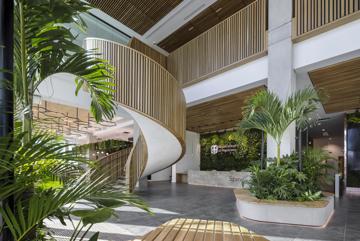Retirement, or redirection?
Professor Dame Jane Dacre, chair, RCP Senior Physicians Society
For those of us who have had a long and fulfilling career as a physician, the prospect of retirement can be quite daunting. From being over-timetabled and rushed off our feet in the NHS or another health system, there is now a balance between the potential for wonderful peace and quiet, and the worry about the potential for boredom and loss of professional identity.
The RCP Senior Physicians Society (SPS) provides a forum for conversations about that balance, and an opportunity to meet and share our experience with like-minded colleagues. It is a pleasure watching our SPS membership numbers consolidating and slowly rising, now that we have become an RCP member benefit, alongside things like voting rights and maintaining post-nominals! I really enjoy our events, and the networking … as well as the excellent talks that we are lucky enough to hear, on a wide variety of topics.
Some colleagues prefer to just stop and to engage in a completely different set of interests. I have chosen to wind down slowly, taking on a portfolio of medically related areas that interest me, while still finding time for other things … without what I call the ‘chores’ of working life. Those numerous work-related responsibilities that are essential, but not much fun, are not part of my portfolio.
I can now contribute on a voluntary basis, doing roles that I enjoy, and I don’t feel guilty about being abroad for work or pleasure, or for taking time off to help to look after my grandchildren.
So, what does my portfolio include now? I have a mix of pro bono work, and work that pays and enhances my NHS pension. I like to take on things that support the medical profession in some way, as I feel that my career has provided the experience to be able to do that, although the views of senior physicians are not always welcomed, especially the ‘in my day’ approach! Following my role as RCP president (2014–18), I have been lucky to be considered for senior non-executive or trustee roles in charities, and I am the current president of the Medical Women’s Federation and the Royal Medical Benevolent Fund. Both of these charities support doctors who may be struggling to find their way through the challenges of medical careers. I also have a role as president of the Medical Protection Society, which is a commercial indemnity provider, but which also focuses on the wellbeing of doctors and dentists.
In the Department of Health and Social Care, I am chair of the Gender Pay Gap Implementation Advisory Board and the UK Health Honours Committee. I am chair of the Independent Expert Panel (IEP) which evaluates the success, or otherwise, of government pledges and policies for the Health and Social Care (Select) Committee. A component of my portfolio that provokes the most envy is being a commissioner for the Accreditation Commission on Colleges of Medicine, where I get the chance to evaluate overseas medical schools … often in the Caribbean (and yes, it is very hard work). These roles are varied, fascinating and keep me thinking!
In addition to those more formal roles, I am also asked to lead shorter-term evaluation projects for health- and education-related organisations when they have a tricky issue to consider. An example of a recent one is the Commission on Pharmacy Professional Leadership. Although it is hard work, it is inspiring to work with a range of colleagues, all part of a team wanting to make things better. One frustration, however, is that after all of our hard work to find an evidence base and a consensus view,
and the report being accepted by the commissioning organisation, it then risks sitting on a shelf gathering dust! This is the so-called ‘implementation gap’, but it is very nice not to have a boss, and to voice my own opinions.
I have been very lucky to have had a career as a clinician, educator and medical education researcher, and am privileged to be able to continue to contribute in areas that I am passionate about. I also have more time to enjoy life beyond medicine, including an average of 2 days in the working week looking after my four granddaughters, or going to an exhibition, or having a walk or lunch with a friend.
Although retirement felt like the end of an era at the time, it has turned out to be more of a redirection, and an opportunity to use a different set of skills that I have learned along the way in my journey through medicine. Sometimes I feel too busy, as it is difficult to regulate the timing of what I do … but I do still have down time, and choose to spend it writing a blog for the SPS, while sitting in south-west France! That feels like a privilege to me. I can thoroughly recommend winding down slowly while still using those hard-earned skills and the experience that a working life as a physician brings.







